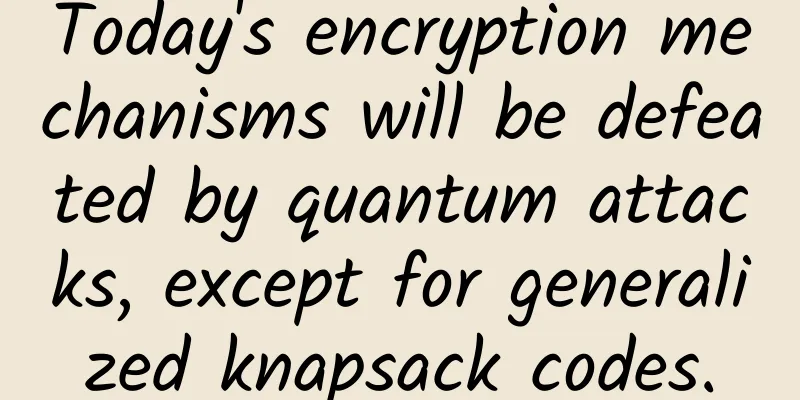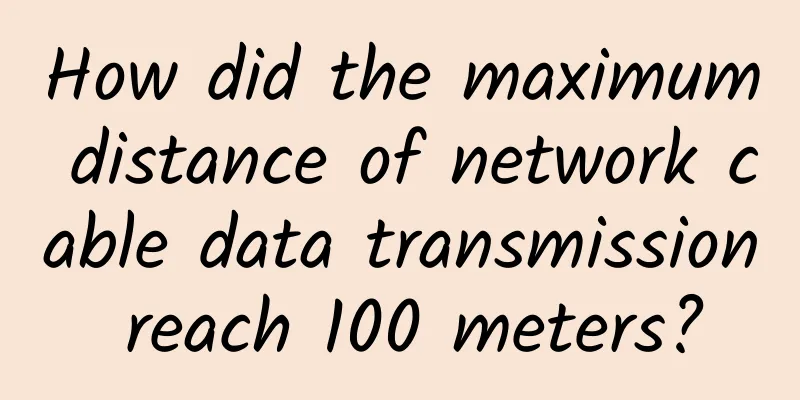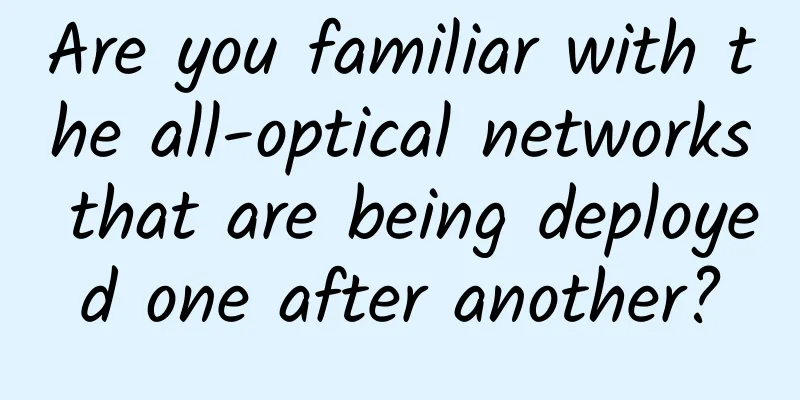Today's encryption mechanisms will be defeated by quantum attacks, except for generalized knapsack codes.

|
[51CTO.com original article] Today's encryption mechanisms that are responsible for protecting Internet data security will not always be so secure. Future quantum computers will use powerful processing power and algorithms to break them. Nathan Hamlin, director of the Mathematics Learning Center and lecturer at Winona State University, is helping people prepare for this eventuality. In a new paper published in the Open Journal of Discrete Mathematics, he describes a generalized knapsack code from his doctoral dissertation, an encryption algorithm that could thwart hackers using the next generation of quantum computers.
The paper clarifies some misconceptions in the complex field of public key cryptography and provides a common basis for understanding for technical experts who will inevitably be tasked with designing new Internet security systems in the future era of quantum computing. “Designing secure systems to protect data requires the combined efforts of experts from a variety of fields who work with numbers in different ways. Pure and applied mathematicians, computer programmers, engineers, and more will all be involved. To make it work in real life, all of these people will need a common language to communicate so that they can make important decisions about how to protect online transactions and personal communications in the future.” Quantum computers operate at the subatomic level and are theoretically billions of times faster than silicon-based computers. Hackers armed with the next generation of quantum computers could theoretically be able to decrypt any internet communication we send today. To create a more future-proof online security system, Hamlin and retired mathematics professor William Webb created the generalized knapsack cipher in 2015 by revamping a previous version of the cipher using alternative number representations beyond the standard binary and base-10 sequences that today’s computers rely on. In his paper, Hamlin explains the generalized knapsack cipher in plain language that computer scientists, engineers and other experts in non-pure mathematics can understand. By disguising data with strings of numbers more complex than the 0s and 1s used by traditional computers, the generalized knapsack cipher offers a viable security method for defending against quantum computing hacking attacks. The generalized knapsack cipher expands the binary representation that today's computers rely on by using a series of numbers other than 0 and 1, making it able to block more attacks, including those that use basis reduction methods - a decryption method that was used to break the original knapsack cipher. Hamlin hopes that his paper, "Numbers in Mathematical Cryptography," will clear up some of the misunderstandings he has encountered along his professional path and allow generalized knapsack ciphers to be developed and applied in the future. "Quantum computing will change the way we process data, and we, as a society, have to make important decisions about how to prepare for this shift. Such cryptography can be applied to traditional hardware and will be resistant to hackers armed with quantum computers. In the face of the possibilities of quantum computing, I think it is time to seriously consider the use of cryptography for commerce and communications." [51CTO original article, please indicate the original author and source as 51CTO.com when reprinting on partner sites] 【Editor's recommendation】
|
Recommend
Jiang Lintao: Full text of the report "CDN Technical Issues and Standardization"! The CDN market is booming
The 2017 Asia-Pacific CDN Summit was held in Beij...
Why don’t we have more options for in-building connectivity?
2019 was a transformational year for the telecomm...
Under the 5G trend | A comparison of deployment between China and the United States
At present, 5G communication technology has cause...
The road to containerized network functions
【51CTO.com Quick Translation】Service providers an...
Get started quickly and build a personalized Python GUI calculator in five minutes
1. Introduction In this tutorial, you will learn ...
Little-known tips for ordinary users to install broadband at home
In the past two years, broadband has become a mus...
HostYun: US CN2 GIA line KVM monthly payment starts from 12 yuan, South Korea CN2 line KVM monthly payment starts from 15.9 yuan
HostYun (Host Cloud) was formerly known as hostsh...
The new role of IT departments in data center operations and management under the background of green energy conservation
Traditionally, the operation and management of da...
H3C ranks first! Its market share of Chinese enterprise network switches exceeds 30% in the first three quarters of 2022
Recently, IDC released the "China Ethernet S...
Rethinking the future of 5G through the lens of extended reality (XR)
5G technology is developing globally, and Singapo...
AlphaVPS: €3.5/month-2GB/15G SSD/1TB/5 data centers including Los Angeles and New York
AlphaVPS is a Bulgarian hosting company, founded ...
2019 Global Trend Conference 5G Ecosystem Cooperation Forum 5G era brings infinite imagination to the future
From November 28th to 29th, the "2019 Global...
CloudCone New Year Promotion, Los Angeles MC Data Center VPS Annual Payment Starting from $9.99
CloudCone has launched a Hashtag 2022 VPS promoti...
Liu Duo from CAICT: There are 32,000 5G base stations used in the industrial Internet
At the 2020 China 5G+ Industrial Internet Confere...
ITU releases draft specification, a big step forward in 5G standardization
According to foreign media reports, despite the o...









